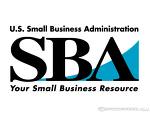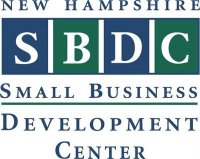Posts Tagged ‘U.S. Small Business Administration’
Friday, February 11th, 2011
Lenders who participate in the U.S. Small Business Administration’s Preferred Lender Program can approve loans through the agency’s new Small Loan Advantage program beginning Feb. 15. At the same time, the agency will begin accepting applications from community-based, mission-focused lenders who are interested in making SBA-guaranteed loans through the new Community Advantage program.
 Both the Small Loan Advantage and Community Advantage programs were announced in December as part of the agency’s efforts to increase the number of lower dollar loans being made to small businesses and entrepreneurs in underserved communities. Both the Small Loan Advantage and Community Advantage programs were announced in December as part of the agency’s efforts to increase the number of lower dollar loans being made to small businesses and entrepreneurs in underserved communities.
“Businesses in underserved communities, including minority and women-owned as well as businesses in rural areas, have been among the hardest hit by the recent economic downturn,” said SBA Administrator Karen Mills. “These two new Advantage initiatives can provide critical support to help these businesses and entrepreneurs get much needed financing to start and grow, which will translate into more jobs in these communities.”
Built on what the agency refers to as its “Advantage” platform, both Small Loan Advantage and Community Advantage offer a streamlined application process for SBA-guaranteed 7(a) loans up to $250,000. Advantage loans will come with the regular 7(a) government guarantee, 85 percent for loans up to $150,000 and 75 percent for those greater than $150,000.
Starting Feb. 15, any of the 610 financial institutions across the country in the SBA’s Preferred Lender Program (PLP) can approve loans using the new Small Loan Advantage process. Under PLP, which includes most of the agency’s highest volume lenders, SBA delegates the final credit decisions to these lenders.
Additionally, on Feb. 15, SBA will begin accepting applications from financial institutions who are interested in becoming Community Advantage lenders. Through Community Advantage, the agency will expand the points of access small business owners have for getting loans by opening SBA’s 7(a) loan program to “mission-focused” financial institutions, including Community Development Financial Institutions, SBA’s Certified Development Companies and SBA’s nonprofit microlending intermediaries. Community Advantage will leverage the experience these institutions already have in lending to minority, women-owned and start-up companies in economically challenged markets, along with their management and technical assistance expertise, to help make their borrowers successful.
SBA and U.S. Department of Commerce studies have shown the importance of lower-dollar loans to small business formation and growth in underserved communities. With that in mind, the two new loan initiatives – Small Loan Advantage and Community Advantage – are aimed at increasing the number of lower-dollar SBA 7(a) loans going to small businesses and entrepreneurs in underserved communities. The agency’s most popular loan product, 7(a) government-guaranteed loans can be used for a variety of general business purposes, including working capital and purchases of equipment and real estate.
Community-based organizations interested in becoming Community Advantage lenders should contact the closest SBA district office.
Tags: Community Advantage program, Karen Mills, Preferred Lender Program, Small Loan Advantage program, U.S. Department of Commerce, U.S. Small Business Administration
Posted in NH Business Matters | Comments Off on SBA Lending Initiatives for Underserved Communities Launch on Feb. 15
Thursday, January 13th, 2011
Small business owners have an opportunity to get tips on business continuity planning in 2011 through a series of free webinars hosted by the U.S. Small Business Administration and Agility Recovery Solutions.
 Information on gauging your business’s potential vulnerabilities to natural and man-made disasters will be presented during the “Starting Fresh—Assessing Risk & Threats to your Business in 2011” webinar on Tuesday, Jan. 18 at 2 p.m. Eastern time. Information on gauging your business’s potential vulnerabilities to natural and man-made disasters will be presented during the “Starting Fresh—Assessing Risk & Threats to your Business in 2011” webinar on Tuesday, Jan. 18 at 2 p.m. Eastern time.
During the hour-long webinar, Agility CEO Bob Boyd and business continuity planner Mark Norton will discuss the basics of risk assessment, the importance of identifying critical small business functions, and employee preparedness.
“A vital part of growing a small business is guarding the company’s infrastructure,” said SBA Administrator Karen Mills. “These free disaster preparedness webinars are an opportunity for business owners to learn how to become proactive and practical about analyzing risks and making a plan to recover. This is about not only protecting the business before disaster strikes, but having a plan in place so the business rebuilds quickly and thrives.”
The SBA has partnered with Agility Recovery Solutions to offer small business continuity strategies via their “PrepareMyBusiness” website at www.preparemybusiness.org. To register for the Jan. 18th webinar, go to https://www1.gotomeeting.com/register/785086473.
Dates and topics for upcoming free webinars are as follows:
Feb. 15 – “Disaster Recovery Year in Review”
March 15 – “SBA Disaster Assistance”
April 19 – “Leading with resiliency during a disaster”
May 17 – “Crisis Communications Planning”
June 21 – “Hurricane Season preparation”
July 19 – “Disaster recovery best practices”
Aug. 16 – “Social media and disaster recovery”
September – Weekly webinars during National Preparedness Month include testing recovery plans, Pandemic planning, and securing management support for recovery planning.
Oct. 18 – “Preparing your business for the Winter Weather season”
Nov. 15 – “The Impact of Preparedness on the bottom Line”
Dec. 20 – “Management obligations during Disaster Recovery”
More preparedness tips for businesses, homeowners and renters are available on the SBA’s website at http://www.sba.gov/content/disaster-preparedness.
Tags: Agility Recovery Solutions, Bob Boyd, Karen Mills, U.S. Small Business Administration
Posted in NH Business Matters | Comments Off on SBA and Agility Recovery Solutions Offer Monthly Small Business Disaster Preparedness Webinars
Wednesday, January 12th, 2011
The U.S. Small Business Administration is accepting grant funding proposals from eligible and well-established national organizations interested in providing training, guidance, counseling, mentoring and procurement assistance to small businesses in teaming arrangements, which may be in the form of a joint venture or prime and subcontractor relationship, under its new Small Business Teaming Pilot program.
 The Small Business Teaming Pilot program was established by Congress under the Small Business Jobs Act of 2010. Under this new program, the SBA expects to make 10-to-20 grant awards in the range of $250,000-$500,000 totaling up to $5,000,000 for fiscal year 2011. The Small Business Teaming Pilot program was established by Congress under the Small Business Jobs Act of 2010. Under this new program, the SBA expects to make 10-to-20 grant awards in the range of $250,000-$500,000 totaling up to $5,000,000 for fiscal year 2011.
“The Small Business Jobs Act provides critical resources to help small businesses continue to drive economic recovery and create jobs,” said SBA Administrator Karen Mills. “The teaming pilot program will help put contract dollars into the hands of small businesses, create job opportunities through the teaming arrangements, help drive innovation and promote economic growth for our nation’s economy.”
To be eligible for these grant awards, an applicant must:
*be a private, non-profit or for-profit entity;
*have been in existence continually for the past three years;
*have experience dealing with issues relating to small business on a national level; and
*demonstrate that it has the capacity to provide assistance to small businesses.
Applicant organizations selected for these awards must leverage the funding received by the SBA by working in conjunction with SBA’s district offices and other federal, state, local and tribal government small business development programs, including: Procurement Technical Assistance Centers, SBA resource partners such as SCORE, Small Business Development Centers, Women’s Business Centers, Veterans Business Outreach Centers, 7(j) technical assistance providers, universities, other institutions of higher education and private organizations such as chambers of commerce and trade and industry groups and associations.
All proposals must be submitted electronically via the government-wide financial assistance portal www.grants.gov no later than 11:59 p.m. on Feb. 25, 2011. For more information about the Small Business Teaming Pilot Program, visit: www.sba.gov/teaming.
Tags: Business Teaming Pilot Program, Karen Mills, Procurement Technical Assistance Center, SCORE, Small Business Development Center, U.S. Small Business Administration, Veterans Business Outreach Center, Women's Business Center
Posted in NH Business Matters | Comments Off on SBA Announces Grant Funding to Increase Contracting Opportunities for Small Businesses
Friday, January 7th, 2011
Export-related loans to small businesses approved under the Jobs Act provisions have reached nearly $110 million as of Dec. 31, the U.S. Small Business Administration announced today.
 “The Jobs Act builds on the efforts already underway through the National Export Initiative by providing SBA with additional tools to help small businesses tap into the global market,” SBA Administrator Karen Mills said. “We know that to take that next step to begin exporting or expand into a new market a small business often needs both financial and counseling resources. “The Jobs Act builds on the efforts already underway through the National Export Initiative by providing SBA with additional tools to help small businesses tap into the global market,” SBA Administrator Karen Mills said. “We know that to take that next step to begin exporting or expand into a new market a small business often needs both financial and counseling resources.
“The Jobs Act strengthened SBA’s ability to provide assistance in both those areas by enhancing our export loan programs and also making counseling and technical assistance more accessible. Already, we’re seeing these tools put to use by small businesses that are in a position to grow and create good-paying jobs in their communities.”
The Jobs Act, signed into law on Sept. 27, raised SBA 7(a) export-related loan limits to $5 million. SBA helps small business exporters through three different export loan programs: Export Express, Export Working Capital Loan and International Trade Loan. The Jobs Act greatly enhances the tools the SBA has to help small business exporters grow.
The Act:
· Helps provide sufficient capital for small businesses looking to start or expand their exporting efforts, the law increased the maximum size of 7(a) International Trade Loans and Export Working Capital Loans to $5 million, up from $2 million, both with 90 percent guaranties.
· Makes the agency’s Export Express loan, which offers a streamlined application process, permanent with a 90 percent guaranty for loans up to $350,000 and 75 percent for loans between $350,000 and $500,000.
· Provides $90 million in grants over three years beginning in mid-2011 for states to help small business owners start or grow their exporting efforts.
· Makes counseling and technical assistance more accessible by increasing the SBA’s staff and other resources available to small business.
For a list of current SBA export lenders, visit http://www.sba.gov/aboutsba/sbaprograms/internationaltrade/lenders/index.html
President Obama has called for doubling the nation’s exports to support creating two million jobs in the next five years. SBA has taken target steps to strengthen its partnership with other federal agencies involved in international trade, creating new tools to help small businesses both begin exporting and grow their exports, and making loans to exporters more accessible.
The National Export Initiative also called for the creation of a new Cabinet-level focus on exports, expanding export financing (which in part is fulfilled by the new SBA loan limits,) prioritizing government advocacy on behalf of U.S. exporters, and providing new resources to U.S. businesses seeking to export, among other things.
For more information on export services for small businesses or to find local counseling and technical assistance resources, please visit www.export.gov.
Tags: Jobs Act, Karen Mills, President Obama, U.S. Small Business Administration
Posted in NH Business Matters | Comments Off on SBA Puts More Capital, Assistance behind Small Business Exporting
Tuesday, January 4th, 2011
The U.S. Small Business Administration is reminding businesses in New Hampshire that Economic Injury Disaster Loans are still available to small businesses and non-profit organizations of all sizes affected by the severe storms and flooding that occurred on Feb. 26, 2010 through March 14, 2010.
 “Businesses and non- profit organizations that suffered economic losses as a result of the disaster and want to apply for low-interest loans from the SBA are urged to do so before the Feb. 4 deadline,” said Frank Skaggs, director of SBA Field Operations Center East in Atlanta. “Businesses and non- profit organizations that suffered economic losses as a result of the disaster and want to apply for low-interest loans from the SBA are urged to do so before the Feb. 4 deadline,” said Frank Skaggs, director of SBA Field Operations Center East in Atlanta.
The maximum loan amount is $2 million for small businesses and non-profit organizations that suffered substantial economic injury from the disaster. These working capital loans may be used to pay fixed debts, payroll, accounts payable and other bills that could have been paid had the disaster not occurred. The loans are not intended to replace lost sales or profits.
The interest rates on these loans are 3 percent for non-profit organizations and 4 percent for businesses, with a maximum term of 30 years. The SBA determines the amount of economic injury and the terms of each loan based on the financial circumstances of each borrower. Eligibility for the program is determined by the SBA, based on the size and type of business, and its financial resources.
To obtain disaster loan information and application forms, call the SBA’s Customer Service Center at 800-659-2955 (800-877-8339 for people with speech or hearing disabilities) Monday through Friday from 8 a.m. to 6 p.m. ET, or send an e-mail to disastercustomerservice@sba.gov. Business disaster loan applications can also be downloaded from www.sba.gov. Completed applications should be mailed to: U.S. Small Business Administration, Processing and Disbursement Center, 14925 Kingsport Road, Fort Worth, TX 76155.
Interested business owners and non-profit organizations may visit the SBA’s secure website at https://disasterloan.sba.gov/ela/ to apply for disaster loans.
The deadline for economic injury applications is February 4, 2011.
Tags: Economic Injury Disaster Loans, Frank Skaggs, U.S. Small Business Administration
Posted in NH Business Matters | Comments Off on SBA Economic Injury Application Deadline for the Severe Storms and Flooding in New Hampshire is 2/4
Thursday, October 21st, 2010
It was a real pleasure for the New Hampshire Division of Economic Development to be a sponsor of last night’s New Hampshire Business Review “Business Excellence Awards” at Southern New Hampshire University. This was a great celebration of New Hampshire’s best and brightest companies and the good folks at NHBR were rewarded for their hard work with a packed room.
Special congrats are in order for “No Bull Business Blog” guest blogger Dr. Russ Ouellette of Sojourn Partners who was recognized with an award in the “Business Services” category. Way to go Russ!!
Here’s a recap of last night’s festivities:
New Hampshire Business Review honored 14 individuals at the 2010 Business Excellence Awards, which recognize the efforts and achievements owners of businesses with 100 employees or fewer.
More than 50 nominations in 13 categories were received, making the job of the 14 judges that much more difficult.
More than 300 people attended the Oct. 20 event, which was held at Southern New Hampshire University in Manchester.
Because of the extraordinary number of accomplished candidates, NHBR also named a tie in the Retail category and finalists in several other categories.
NHBR also announced two inductees into the Business Excellence Hall of Fame, which singles out people whose entire careers have been marked by a consistent and impressive record of accomplishments, both in their chosen fields, in their communities, and across the state and beyond. These honorees were selected by a separate panel of judges.
“Each of the businesspeople who receive these honors has a different story to tell,” said Sharron McCarthy, president of McLean Communications and publisher of NHBR. “But what they have in common is determination, industriousness and the ability to come up with innovative solutions that have allowed their businesses to survive and thrive, regardless of economic conditions, and a commitment to serving their communities.”
 NHBR Editor Jeff Feingold Jeff Feingold, editor of NHBR, said, “We would like to salute all of the nominees, the people who nominated them and the winners themselves for their contributions toward making New Hampshire a great place to do business.”
Emcee was Charlie Sherman, host of WGIR-AM’s morning news talk program.
A portion of the proceeds from the evening benefited Court Appointed Special Advocates, or CASA, which advocates for New Hampshire children in the state’s court system in cases of neglect and abuse.
The winners of the 2010 NHBR Business Excellences Awards were:
 "Business Services" winner Dr. Russ Ouellette • Excellence in Business Services — Russ Ouellette, Sojourn Partners LLC, Bedford
• Excellence in Construction — G. Hayden McLaughlin, Belknap Landscape Co., Inc., Gilford
• Excellence in Financial Services — Frank Teas, The Nashua Bank
• Excellence in Health Care — Joshua Siegal, M.D., Access Sports Medicine & Orthopaedics, Exeter
• Excellence in Hospitality — Carol Sheehan, The Red Arrow 24 Hr. Franchising Inc., Manchester
• Excellence in Media & Marketing — Linda Fanaras, Millennium Integrated Marketing Inc., Manchester
• Excellence in Nonprofits — Peter Kelleher, Partnership for Successful Living, Nashua
• Excellence in Professional Services — Jonathan Halle, Warrenstreet Architects, Concord
• Excellence in Real Estate — Quentin Keefe, Regency Mortgage Corp., Manchester
• Excellence in Retail (tie) — Susan Lozier Robert, Frederick’s Pastries, Amherst; Curt Jacques, West Lebanon Feed & Supply
• Excellence in Technology — Jason Alexander, Alexander Technology Group, Bedford
The 2010 NHBR Business Excellence Hall of Fame Inductees were:
• Alex Ray, founder, Common Man Family of Restaurants
• Lew Feldstein, former chairman, New Hampshire Charitable Foundation
The judges for the 2010 NHBR Business Excellence Awards were:
• Jennifer Boulanger, loan officer at Capital Region Economic Development Corp. in Concord and former executive director of the Belknap County Economic Development Council based in Laconia
• Robin Comstock, president and CEO, Greater Manchester Chamber of Commerce
• Roy Duddy, interim director, New Hampshire Division of Economic Development
• Lou Guevin, former chairman, Junior Achievement of New Hampshire
• Julie Gustafson, president and CEO, Amoskeag Business Incubator, Manchester
• Richard Hanson, professor, accounting and taxation, Southern New Hampshire University, Manchester; executive director, Institute for Forensic Accounting and Fraud Examination, SNHU
• Mahboubul Hassan, professor, economics and finance, SNHU
• Lise Howson, vice president and business banking relationship manager, Citizens Bank
• Witmer Jones, New Hampshire district director, U.S. Small Business Administration
• Dave Juvet, senior vice president, Business & Industry Association of New Hampshire
• Patrick F. McDermott, economic and community development manager, Public Service Company of New Hampshire
• Tim Sink, president, Greater Concord Chamber of Commerce
• Ashley Smith, business editor, The Nashua Telegraph
• Chip Underhill, senior marketing manager, FairPoint Communications, Manchester
Sponsors of the event were FairPoint Communications, Laconia Savings Bank, Harvard Pilgrim Health Care of New England, Public Service of New Hampshire, J Maze Design, New Hampshire Division of Economic Development, Merrimack Street Volvo, WGIR-AM 610, New Hampshire Public Television and Southern New Hampshire University. — NEW HAMPSHIRE BUSINESS REVIEW
Tags: Alex Ray, Alexander Technology Group, Ashley Smith, Belknap Landscape Co., Business & Industry Association of New Hampshire, Capital Region Economic Development Corp., Carol Sheehan, CASA, Charlie Sherman, Chip Underhill, Citizens Bank, Common Man Family of Restaurants, Curt Jacques, Dave Juvet, FairPoint Communications, Frank Teas, Frederick's Pastries, G. Hayden McLaughlin, Greater Concord Chamber of Commerce, Greater Manchester Chamber of Commerce, Harvard Pilgrim Health Care of New England, J Maze Design, Jason Alexander, Jeff Feingold, Jennifer Boulanger, Jonathan Halle, Joshua Siegal M.D., Julie Gustafson, Junior Achievement of New Hampshire, Lew Feldstein, Linda Fanaras, Lise Howson, Lou Guevin, Mahboubul Hassan, Merrimack Street Volvo, Millenium Advertising, Nashua Telegraph, New Hampshire Business Review, New Hampshire Charitable Foundation, New Hampshire Division of Economic Development, New Hampshire Public Television, Partnership for Successful Living, Pat McDermott, Peter Kelleher, Public Service of New Hampshire, Quentin Keefe, Regency Mortgage Corp., Richard Hanson, Robin Comstock, Roy Duddy, Russ Ouellette, Sharron McCarthy, Sojourn Partners, Southern New Hampshire University, Susan Lozier Robert, The Nashua Bank, The Red Arrow, Tim Sink, U.S. Small Business Administration, Warrenstreet Architects, West Lebanon Feed & Supply, WGIR-AM, Witmer Jones
Posted in NH Business Matters | Comments Off on Winners Celebrated at 8th Business Excellence Awards
Wednesday, September 1st, 2010
With Hurricane Earl on its way, I thought that this press release from the Small Business Administration was particularly timely and relevant:
SBA Encourages the Public to Plan for Disasters During National Preparedness Month
In conjunction with the five-year anniversary of the devastating Gulf Coast storms of 2005, the U.S. Small Business Administration is encouraging business owners, homeowners and others to create their own disaster preparedness plan during National Preparedness Month in September.
 “There is a tendency to think that a large-scale disaster is not going to happen ‘where I live,’” SBA Administrator Karen Mills said. “The reality is that storms, floods, earthquakes, fires and man-made disasters can strike anytime and anywhere. Planning ahead for your own post-disaster recovery is a good step toward protecting your family, your business and your community.” “There is a tendency to think that a large-scale disaster is not going to happen ‘where I live,’” SBA Administrator Karen Mills said. “The reality is that storms, floods, earthquakes, fires and man-made disasters can strike anytime and anywhere. Planning ahead for your own post-disaster recovery is a good step toward protecting your family, your business and your community.”
SBA, along with many state, local government and private sector coalition partners are participating in this September’s National Preparedness Month.
To prepare for disasters, SBA offers the following tips:
·Develop a solid emergency response plan. Find evacuation routes from the home or business and establish meeting places. Make sure everyone understands the plan beforehand. Keep emergency phone numbers handy. Business owners should designate a contact person to communicate with other employees, customers and vendors. Homeowners, renters and business owners should ask an out-of-state friend, colleague or family member to be a “post-disaster” point of contact, supporting the flow of information about short-term relocations, recovery, additional sources of assistance, etc.
·Make sure you have adequate insurance coverage. Disaster preparedness begins with having adequate insurance coverage—at least enough to rebuild your home or business. Homeowners and business owners should review their policies to see what is or isn’t covered. Companies should consider business interruption insurance, which helps cover operating costs during the post-disaster shutdown period. Flood insurance is essential. To find out more about the National Flood Insurance Program, visit the Web site at www.floodsmart.gov.
·Copy important records. It’s a good idea to back up vital records and information saved on computer hard drives, and store that information at a distant offsite location in fireproof safe deposit boxes. You should have copies/back ups of important documents ready to take with you if you have to evacuate.
·Create a “Disaster Survival Kit.” The kit should include a flashlight, a portable radio, extra batteries, first-aid supplies, non-perishable food, bottled water, a basic tool kit, plastic sheeting and garbage bags, cash, and a digital camera to take pictures of the property damage after the storm.
More preparedness tips for businesses, homeowners and renters are available on the SBA’s website at www.sba.gov.
The Institute for Business and Home Safety (www.disastersafety.org ) also has information on protecting your home or business. Additional information on developing an emergency plan is available at the federal government’s preparedness website www.ready.gov.
When disaster strikes, the SBA makes low-interest loans to homeowners, renters and non-farm businesses of all sizes. Homeowners may borrow up to $200,000 to repair or replace damaged real estate. Individuals may borrow up to $40,000 to cover losses to personal property.
Non-farm businesses and non-profit organizations of any size may apply for up to $2 million to repair or replace disaster damaged business assets and real property. Small businesses that suffered economic losses as a direct result of the declared disaster may apply for a working capital loan up to $2 million, even if the property was not physically damaged.
To learn more about the SBA’s disaster assistance program, visit the website at www.sba.gov/disasterassistance.
Tags: Hurricane Earl, Institute for Business and Home Safety, Karen Mills, U.S. Small Business Administration
Posted in NH Business Matters | Comments Off on SBA Encourages the Public to Plan for Disasters During National Preparedness Month
Friday, April 23rd, 2010
The U.S. Small Business Administration is accepting grant funding requests from the governors of U.S. states and territories to support programs for innovative, technology-driven small businesses under SBA’s Federal and State Technology (FAST) partnership program through May 10, 2010.
 FAST provides $2 million in funding (up to $100,000 per applicant) for outreach and technical assistance to science and technology-driven small businesses. The program places particular emphasis on helping socially and economically disadvantaged firms compete in the SBA’s Small Business Innovation Research (SBIR) and Small Business Technology Transfer (STTR) programs. Eligible applicants for FAST grants include state and local economic development agencies, Small Business Development Centers, and colleges and universities. Each state, through its governor, may submit one proposal. FAST provides $2 million in funding (up to $100,000 per applicant) for outreach and technical assistance to science and technology-driven small businesses. The program places particular emphasis on helping socially and economically disadvantaged firms compete in the SBA’s Small Business Innovation Research (SBIR) and Small Business Technology Transfer (STTR) programs. Eligible applicants for FAST grants include state and local economic development agencies, Small Business Development Centers, and colleges and universities. Each state, through its governor, may submit one proposal.
“The FAST program is an important catalyst for helping America’s cutting-edge entrepreneurs continue to drive innovation and create good jobs,” said Karen G. Mills, SBA Administrator. “The partnerships developed through these programs will play a critical role in helping high-growth potential small firms lay a stronger foundation for economic prosperity.”
FAST funding applicants are encouraged to show how they will help support areas such as:
- small business research and development assistance,
technology transfer from universities to small businesses,
technological diffusion of innovation benefiting small businesses,
proposal development and mentoring for small businesses applying for SBIR grants; and,
commercialization of technology developed through SBIR grants.
Companies supported by the SBIR and STTR programs often generate some of the most important breakthroughs each year in the U.S. For example, about 25 percent of R&D Magazine’s Top 100 Innovations come from SBIR-funded small businesses.
More details about FAST grants can be found here: http://www.sba.gov/idc/groups/public/documents/sba_homepage/sba_fast_program_annc.pdf
Proposals will be evaluated by a committee consisting of small business owners, state level representatives, federal SBIR program managers and representatives of the business and academic communities. The SBA, the Department of Defense and the National Science Foundation will jointly review the recommendations from the evaluation panel and make awards based on proposal merit. Varying levels of matching funds are required from each participating state and territory.
The SBIR program—administered by the SBA—requires 11 federal agencies with more than $100 million in R&D spending to set aside 2.5 percent of those funds for competitively-awarded SBIR grants. In Fiscal Year 2007, these agencies provided about 5,500 SBIR federal grants and contracts for small businesses, a $2 billion investment.
STTR requires federal agencies with over $1 billion in extramural R&D funding to set aside 0.3 percent. STTR totaled about 870 awards for $218 million in Fiscal Year 2007.
For more information about the SBIR and STTR programs, visit SBA’s Web site at: www.sba.gov/sbir.
Tags: Department of Defense, FAST, Karen G. Mills, National Science Foundation, R&D Magazine, SBIR, STTR, U.S. Small Business Administration
Posted in NH Business Matters | Comments Off on SBA Announces Grant Funding Available for States to Support R&D, Small Business Innovation
Wednesday, February 10th, 2010
If you’re thinking of starting your own business in New Hampshire, the New Hampshire Small Business Development Center has the online course for you.
An outreach program of the University of New Hampshire Whittemore School of Business and Economics, the NH SBDC has launched the online course “Starting a Business in New Hampshire.” (http://nhsbdc.org/eLearning/Index.html). It is one of more than 20 free online courses that are part of the center’s e-Learning for Entrepreneurs courses.
 “SBDC’s new course empowers New Hampshire entrepreneurs by providing critical facts and details needed to get their businesses up and running,” said Mary Collins, NH SBDC state director. “We know that we will save New Hampshire entrepreneurs many hours of research, and hope that this helps create stronger businesses and jobs here in the Granite State.” “SBDC’s new course empowers New Hampshire entrepreneurs by providing critical facts and details needed to get their businesses up and running,” said Mary Collins, NH SBDC state director. “We know that we will save New Hampshire entrepreneurs many hours of research, and hope that this helps create stronger businesses and jobs here in the Granite State.”
The NH SBDC received a grant from the U.S. Small Business Administration to develop the online course for distressed areas of the state.
The course provides the aspiring New Hampshire small business owner with information and resources for starting a business in New Hampshire. Find out about registering a business name, the different types of business organization, taxes and licensing, insurance, business plans, and more. Many important website links and other resources are provided within the course. The course includes 65 animated slides and will last about 75 minutes. Like all of the e-Learning for Entrepreneurs courses, courses are designed to be taken during one or multiple sittings. Students can pause a course at any point and restart it later.
The NH SBDC’s e-Learning for Entrepreneurs classes are free and available online, any time. More than 20 classes are offered in finance, marketing and business management. Each 2-3.5 hour course is comprised of animated slides accompanied by voice-over narration, PowerPoint presentations, worksheets, toolsets, and access to a comprehensive knowledgebase.
More than 1,500 e-Learning for Entrepreneurs classes have been taken. The addition of “Starting a Business in New Hampshire” provides the first of several courses directed specifically to New Hampshire entrepreneurs.
E-Learning for Entrepreneurs is sponsored by Public Service of New Hampshire, NH Division of Economic Development, and the University of New Hampshire.
Tags: Mary Collins, NH Division of Economic Development, NH Small Business Development Center, Public Service of New Hampshire, U.S. Small Business Administration, University of NH, Whittemore School of Business & Economics
Posted in NH Business Matters | Comments Off on NHSBDC Launches Free Online Course on Starting a Business in NH
Friday, November 6th, 2009
Just received this from the folks over at the U.S. Small Business Administration:
The U.S. Small Business Administration is reminding businesses in New Hampshire that Economic Injury Disaster Loans are still available to small businesses economically impacted by the severe ice storm that occurred December 11, 2008.
“Businesses that suffered economic losses as a result of the disaster and want to apply for lowinterest loans from the SBA are urged to do so before the December 5 deadline,” said Frank Skaggs, Director of SBA Field Operations Center East.
 Small businesses in the following counties are eligible to apply: Belknap, Carroll, Cheshire, Coos, Grafton, Hillsborough, Merrimack, Rockingham, Strafford and Sullivan in New Hampshire; Essex, Middlesex and Worcester counties in Massachusetts; York County in Maine and Caledonia, Essex, Orange and Windsor counties in Vermont. Small businesses in the following counties are eligible to apply: Belknap, Carroll, Cheshire, Coos, Grafton, Hillsborough, Merrimack, Rockingham, Strafford and Sullivan in New Hampshire; Essex, Middlesex and Worcester counties in Massachusetts; York County in Maine and Caledonia, Essex, Orange and Windsor counties in Vermont.
Loans are available up to $2 million for small businesses that suffered substantial economic injury from the disaster. These working capital loans may be used to pay fixed debts, payroll, accounts payable, and other bills that could have been paid had the disaster not occurred. These loans are not intended to replace lost sales or profits.
The interest rate on these loans is 4 percent, with a maximum term of 30 years. The SBA determines the amount of economic injury and the terms of each loan based on the financial circumstances of each borrower. The SBA determines eligibility for the program based on the size and type of business and its financial resources.
To obtain a loan application, interested business owners should contact the SBA’s Customer Service Center by calling 1-800-659-2955 (1-800-877-8339 for the hearing-impaired) Monday through Friday from 8 a.m. to 9 p.m. EST, or by sending an email to disastercustomerservice@sba.gov. Business disaster loan applications can also be downloaded from www.sba.gov/services/disasterassistance. Completed applications should be mailed to: U.S. Small Business Administration, Processing and Disbursement Center, 14925 Kingsport Road, Fort Worth, TX 76155.
Victims may visit the SBA’s secure website at https://disasterloan.sba.gov/ela/ to apply for disaster loans.
The deadline for economic injury applications is December 5, 2009.
Tags: Frank Skaggs, U.S. Small Business Administration
Posted in NH Business Matters | Comments Off on Deadline Nears For SBA Disaster Loans
|
 Both the Small Loan Advantage and Community Advantage programs were announced in December as part of the agency’s efforts to increase the number of lower dollar loans being made to small businesses and entrepreneurs in underserved communities.
Both the Small Loan Advantage and Community Advantage programs were announced in December as part of the agency’s efforts to increase the number of lower dollar loans being made to small businesses and entrepreneurs in underserved communities. 









 Information on gauging your business’s potential vulnerabilities to natural and man-made disasters will be presented during the “Starting Fresh—Assessing Risk & Threats to your Business in 2011” webinar on Tuesday, Jan. 18 at 2 p.m. Eastern time.
Information on gauging your business’s potential vulnerabilities to natural and man-made disasters will be presented during the “Starting Fresh—Assessing Risk & Threats to your Business in 2011” webinar on Tuesday, Jan. 18 at 2 p.m. Eastern time. The Small Business Teaming Pilot program was established by Congress under the Small Business Jobs Act of 2010. Under this new program, the SBA expects to make 10-to-20 grant awards in the range of $250,000-$500,000 totaling up to $5,000,000 for fiscal year 2011.
The Small Business Teaming Pilot program was established by Congress under the Small Business Jobs Act of 2010. Under this new program, the SBA expects to make 10-to-20 grant awards in the range of $250,000-$500,000 totaling up to $5,000,000 for fiscal year 2011.  “The Jobs Act builds on the efforts already underway through the National Export Initiative by providing SBA with additional tools to help small businesses tap into the global market,” SBA Administrator Karen Mills said. “We know that to take that next step to begin exporting or expand into a new market a small business often needs both financial and counseling resources.
“The Jobs Act builds on the efforts already underway through the National Export Initiative by providing SBA with additional tools to help small businesses tap into the global market,” SBA Administrator Karen Mills said. “We know that to take that next step to begin exporting or expand into a new market a small business often needs both financial and counseling resources.  “Businesses and non- profit organizations that suffered economic losses as a result of the disaster and want to apply for low-interest loans from the SBA are urged to do so before the Feb. 4 deadline,” said Frank Skaggs, director of SBA Field Operations Center East in Atlanta.
“Businesses and non- profit organizations that suffered economic losses as a result of the disaster and want to apply for low-interest loans from the SBA are urged to do so before the Feb. 4 deadline,” said Frank Skaggs, director of SBA Field Operations Center East in Atlanta. 

 “There is a tendency to think that a large-scale disaster is not going to happen ‘where I live,’” SBA Administrator Karen Mills said. “The reality is that storms, floods, earthquakes, fires and man-made disasters can strike anytime and anywhere. Planning ahead for your own post-disaster recovery is a good step toward protecting your family, your business and your community.”
“There is a tendency to think that a large-scale disaster is not going to happen ‘where I live,’” SBA Administrator Karen Mills said. “The reality is that storms, floods, earthquakes, fires and man-made disasters can strike anytime and anywhere. Planning ahead for your own post-disaster recovery is a good step toward protecting your family, your business and your community.” FAST provides $2 million in funding (up to $100,000 per applicant) for outreach and technical assistance to science and technology-driven small businesses. The program places particular emphasis on helping socially and economically disadvantaged firms compete in the SBA’s Small Business Innovation Research (SBIR) and Small Business Technology Transfer (STTR) programs. Eligible applicants for FAST grants include state and local economic development agencies, Small Business Development Centers, and colleges and universities. Each state, through its governor, may submit one proposal.
FAST provides $2 million in funding (up to $100,000 per applicant) for outreach and technical assistance to science and technology-driven small businesses. The program places particular emphasis on helping socially and economically disadvantaged firms compete in the SBA’s Small Business Innovation Research (SBIR) and Small Business Technology Transfer (STTR) programs. Eligible applicants for FAST grants include state and local economic development agencies, Small Business Development Centers, and colleges and universities. Each state, through its governor, may submit one proposal. “SBDC’s new course empowers New Hampshire entrepreneurs by providing critical facts and details needed to get their businesses up and running,” said Mary Collins, NH SBDC state director. “We know that we will save New Hampshire entrepreneurs many hours of research, and hope that this helps create stronger businesses and jobs here in the Granite State.”
“SBDC’s new course empowers New Hampshire entrepreneurs by providing critical facts and details needed to get their businesses up and running,” said Mary Collins, NH SBDC state director. “We know that we will save New Hampshire entrepreneurs many hours of research, and hope that this helps create stronger businesses and jobs here in the Granite State.” Small businesses in the following counties are eligible to apply: Belknap, Carroll, Cheshire, Coos, Grafton, Hillsborough, Merrimack, Rockingham, Strafford and Sullivan in New Hampshire; Essex, Middlesex and Worcester counties in Massachusetts; York County in Maine and Caledonia, Essex, Orange and Windsor counties in Vermont.
Small businesses in the following counties are eligible to apply: Belknap, Carroll, Cheshire, Coos, Grafton, Hillsborough, Merrimack, Rockingham, Strafford and Sullivan in New Hampshire; Essex, Middlesex and Worcester counties in Massachusetts; York County in Maine and Caledonia, Essex, Orange and Windsor counties in Vermont.